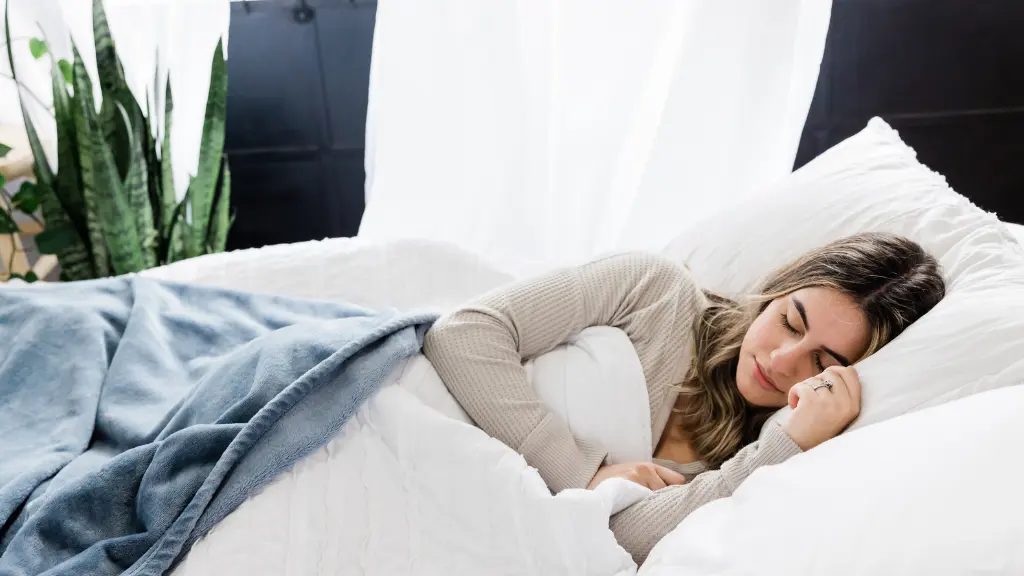Explore why women often face more sleep issues than men. Discover the science behind sleep struggles and effective solutions for better rest.
Sleep is essential for health and well-being, but it seems that women face more sleep-related issues than men. Research consistently shows that women report more instances of insomnia, restless nights, and disrupted sleep than their male counterparts. But why is this the case?
Understanding the unique biological and lifestyle factors that impact women’s sleep can make a big difference in managing and overcoming these issues. This article dives into the causes and offers practical solutions for a restful night.
You May Also Like: Can My Dog Make Me Sick?
1. Hormonal Factors
Women’s sleep patterns are heavily influenced by hormonal fluctuations. Hormones like estrogen and progesterone, which regulate reproductive health, also impact sleep. For instance:
- Menstrual Cycle: In the days leading up to menstruation, many women report trouble sleeping, often linked to hormonal dips that affect temperature regulation and mood.
- Pregnancy: Hormonal changes, physical discomfort, and anxiety during pregnancy often make sleep more challenging. Some women experience conditions like sleep apnea for the first time while pregnant.
- Menopause: During menopause, women frequently experience night sweats and hot flashes that disrupt sleep. Lower estrogen levels also contribute to increased insomnia in this phase of life.
2. Mental Health and Anxiety
Mental health issues, particularly anxiety and depression, can have a strong impact on sleep. Research shows that women are more likely than men to experience anxiety and mood disorders, which may explain part of the disparity in sleep quality between genders. Anxiety can keep the mind racing at night, preventing restful sleep.
Tips to Manage Anxiety-Related Sleep Issues:
- Practice mindfulness or meditation before bed.
- Establish a relaxing bedtime routine.
- Limit exposure to screens and stressful activities in the evening.
3. Role of Lifestyle and Family Responsibilities
For many women, lifestyle demands and responsibilities contribute to their sleep challenges. Women often shoulder a large part of family caregiving duties, which can lead to irregular sleep schedules and even nighttime awakenings. This is especially true for mothers of young children, who may need to wake up during the night to tend to their children.
Further, the demands of balancing work, home responsibilities, and social commitments can lead to stress and reduced sleep quality.
Solutions for Better Sleep Despite Busy Schedules:
- Set firm boundaries around sleep and personal time.
- Enlist help from partners or family for night-time caregiving.
- Consider short naps during the day if you have irregular sleep patterns.
4. Biological Differences in Circadian Rhythm
Studies suggest that women’s circadian rhythms – the internal clock that regulates sleep and wake cycles – may be shorter than men’s. This could mean that women feel tired earlier in the evening and wake up earlier in the morning. The “early bird” tendency may be challenging for women who have work or social obligations that don’t align with their natural sleep preferences.
How to Adjust Circadian Rhythms:
- Limit bright light exposure in the evening to support natural melatonin production.
- Try light therapy in the morning to help set your internal clock.
- Consistently go to bed and wake up at the same time to help your body adapt.
5. Higher Risk of Insomnia
Women are about 1.5 times more likely to experience insomnia than men. This could be due to the combined effects of hormonal changes, mood disorders, and lifestyle stressors. Insomnia in women often leads to poor mental focus, mood swings, and reduced energy during the day.
Coping Strategies for Insomnia:
- Create a calming, clutter-free sleep environment.
- Engage in relaxation techniques like deep breathing or progressive muscle relaxation before bed.
- Limit caffeine intake, especially in the afternoon and evening.
6. Effects of Medications
Certain medications, including birth control pills, antidepressants, and hormone replacement therapy, can impact sleep. Birth control pills, for example, may affect how women experience temperature changes, which can contribute to night sweats and sleep disturbances. Understanding these effects can help in choosing medication options with minimal sleep-related side effects.
Tips for Minimizing Medication Impact on Sleep:
- Talk to your doctor if you think your medication is affecting your sleep.
- Take medication at a different time of day if possible.
- Explore natural alternatives for sleep, such as melatonin supplements, after consulting with your doctor.
7. Physical Health and Sleep Apnea
Women tend to report different symptoms of sleep apnea than men, and they are often less likely to be diagnosed. Unlike men, who commonly experience loud snoring, women with sleep apnea may report insomnia, headaches, and mood disturbances. This condition, if untreated, can lead to long-term health issues, including heart disease.
How to Recognize and Manage Sleep Apnea:
- Be aware of symptoms like frequent nighttime awakenings, dry mouth, or morning headaches.
- Talk to a doctor if you suspect you have sleep apnea.
- Consider using a CPAP machine or other treatments if diagnosed.
Practical Tips to Improve Sleep for Women
For women facing sleep issues, several practical steps can improve sleep quality:
- Prioritize Sleep: Make sleep as important as other aspects of health. Aim for 7-9 hours each night.
- Exercise Regularly: Physical activity can promote better sleep but should be done earlier in the day to avoid increasing alertness at night.
- Practice Good Sleep Hygiene: Avoid heavy meals, caffeine, and alcohol close to bedtime. Ensure your bedroom is dark, quiet, and cool.
- Limit Screen Time: Blue light from screens can interfere with melatonin production. Try reading a book or practicing relaxation techniques instead.
Final Thoughts on Women’s Sleep Issues
Women experience sleep issues more often than men due to unique biological, psychological, and lifestyle factors. Understanding these root causes is key to finding the right solutions. By practicing good sleep hygiene and making lifestyle adjustments, many women can overcome these challenges and enjoy restorative, quality sleep. Additionally, consulting a healthcare provider can help identify sleep disorders and guide effective treatment options.










